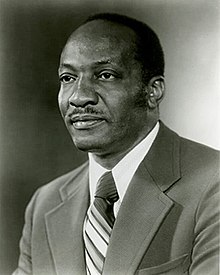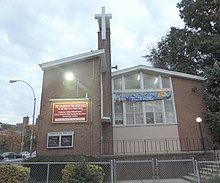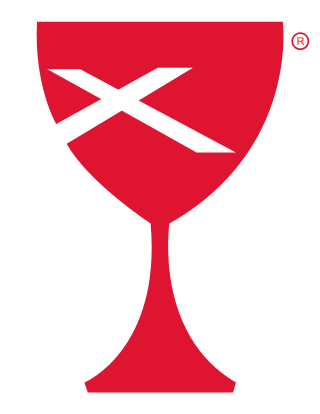
The Christian Church (Disciples of Christ) is a mainline Protestant Christian denomination in the United States and Canada. The denomination started with the Restoration Movement during the Second Great Awakening,first existing during the 19th century as a loose association of churches working towards Christian unity,then slowly forming quasi-denominational structures through missionary societies,regional associations,and an international convention. In 1968,the Disciples of Christ officially adopted a denominational structure at which time a group of churches left to remain nondenominational.

The Southern Baptist Convention (SBC),alternatively the Great Commission Baptists (GCB),is a Christian denomination based in the United States. It is the world's largest Baptist organization and the largest Protestant and second-largest Christian body in the United States. The SBC is a cooperation of fully autonomous,independent churches with commonly held essential beliefs that pool some resources for missions.
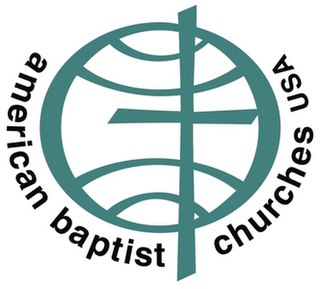
The American Baptist Churches USA (ABCUSA) is a Baptist Christian denomination established in 1907 originally as the Northern Baptist Convention,and from 1950 to 1972 as the American Baptist Convention. It traces its history to the First Baptist Church in America (1638) and the Baptist congregational associations which organized the Triennial Convention in 1814.

The United Church of Christ (UCC) is a socially liberal mainline Protestant Christian denomination based in the United States,with historical and confessional roots in the Congregational,Restorationist,Continental Reformed,and Lutheran traditions,and with approximately 4,600 churches and 712,000 members.The UCC is a historical continuation of the General Council of Congregational Christian churches founded under the influence of New England Puritanism. Moreover,it also subsumed the third largest Calvinist group in the country,the German Reformed. Notably,its modern members' theological and socio-political stances are often very different from those of its predecessors.
The National Council of the Churches of Christ in the USA,usually identified as the National Council of Churches (NCC),is the largest ecumenical body in the United States. NCC is an ecumenical partnership of 38 Christian faith groups in the United States. Its member communions include mainline Protestant,Eastern Orthodox,African-American,evangelical,and historic peace churches. Together,it encompasses more than 100,000 local congregations and 40 million adherents. It began as the Federal Council of Churches in 1908,and expanded through merger with several other ecumenical organizations to become the National Council of Churches in 1950. Its Interim President and General Secretary is Bishop Vashti Murphy McKenzie.
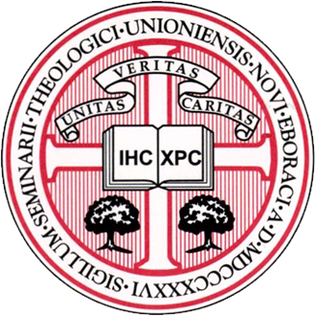
Union Theological Seminary in the City of New York is a private ecumenical liberal Christian seminary in Morningside Heights,Manhattan,affiliated with Columbia University. Columbia University lists UTS among its affiliate schools,alongside with Barnard College and Teachers College. Since 1928,the seminary has served as Columbia's constituent faculty of theology. In 1964,UTS also established an affiliation with the neighboring Jewish Theological Seminary of America. Despite its affiliation with Columbia University,UTS is an independent institution with its own administration and Board of Trustees. UTS confers the following degrees:Master of Divinity (MDiv),Master of Divinity &Social Work dual degree (MDSW),Master of Arts in religion (MAR),Master of Arts in Social Justice (MASJ),Master of Sacred Theology (STM),Doctor of Ministry (DMin),and Doctor of Philosophy (PhD).

Bellevue Baptist Church is a Baptist megachurch in the Cordova area of Memphis,Tennessee,United States. It is affiliated with the Southern Baptist Convention. Bellevue was once the largest church in the Memphis area. Bellevue's goals are to "Love God,Love People,Share Jesus,and Make Disciples." The church's head pastor has been Steve Gaines since 2005.

The Chicago Theological Seminary (CTS) is a Christian ecumenical American seminary located in Chicago,Illinois,and is one of several seminaries historically affiliated with the United Church of Christ. It is the oldest institution of higher education in Chicago,originally established in 1855 under the direction of the abolitionist Stephen Peet and the Congregational Church by charter of the Illinois legislature.

James Petigru Boyce was an American pastor,theologian,professor,chaplain,and a principle founder of the Southern Baptist Theological Seminary.
L. Paige Patterson served as the fifth president of Southeastern Baptist Theological Seminary in Wake Forest,N.C.,from 1992 to 2003,as president of the Southern Baptist Convention (SBC) from 1998 to 2000,and as the eighth president of the Southwestern Baptist Theological Seminary in Fort Worth,Texas,from 2003 until his firing in 2018.

John Steven Gaines is an American Southern Baptist pastor,and the president of the Southern Baptist Convention. He is currently serving at Bellevue Baptist Church in Cordova,one of the largest congregations in the Southern Baptist Convention and has visited Israel 16 times. On Sunday,July 10,2005,the Pastor Search Committee of Bellevue Baptist Church presented Dr. Steve Gaines to the church congregation. At the conclusion of the services the Bellevue family overwhelmingly voted to call Steve Gaines as the seventh Pastor of Bellevue Baptist Church. Gaines succeeds the longtime Bellevue pastor Adrian Rogers.
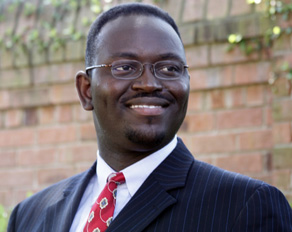
Clementa Carlos Pinckney was an American politician and pastor who served as a Democratic member of the South Carolina Senate,representing the 45th District from 2000 until his murder in 2015. He was previously a member of the South Carolina House of Representatives from 1997 through 2000.
Moses William Howard,Jr. is an American cleric,former college president,community and business leader. He is known for his involvement in ecumenical organizations domestically and internationally and in international affairs,especially within the Middle East and Southern Africa. He is the son of the late Laura Turner Howard and the late Moses William Howard,Sr. He attended public schools in Americus before enrolling in Morehouse College,where he graduated in 1968. He earned a Master of Divinity degree at Princeton Theological Seminary in 1972. His worldview was shaped initially in response to the racial segregation he experienced in his hometown,where he participated in voter registration drives in the early 1960s. He studied Philosophy and Psychology at Morehouse and was heavily influenced by Professors Samuel Woodrow Williams and Lucius M. Tobin. His principal academic advisor at Princeton was Professor Edward Jabra Jurgi.
Otis Moss III is the pastor of Chicago's Trinity United Church of Christ. He espouses black theology and speaks about reaching inner-city black youth.
James David "J.D." Greear is an American Baptist pastor. He is the pastor of The Summit Church in Durham,North Carolina. Greear has authored several books,including 12 Truths &a Lie (2023),Essential Christianity (2023), Just Ask (2021),What Are You Going to Do with Your Life? (2020),Above All (2019),Not God Enough (2018),Gaining by Losing (2015),Gospel (2011),Stop Asking Jesus into Your Heart (2013),Jesus,Continued…(2014),and others. He also hosts Summit Life,a 30-minute daily radio broadcast and weekly TV program. He serves as a member of the Board of Directors of Chick-fil-A,serves as a Council member for The Gospel Coalition,and recently served as the 62nd president of the Southern Baptist Convention from 2018 to 2021.
Andrew Fowler was a Baptist minister,educator,school administrator,counselor,political and religious adviser,church statesman and civil rights activist in Washington D.C.

The Nineteenth Street Baptist Church,located on 16th Street,NW,is considered to be the first and oldest Baptist,black congregation in Washington,D.C. Since its founding in 1839,the church has figured prominently within the historical and social fabric of Washington,D.C.'s African American community.
John C. Dorhauer is an American Protestant clergy member,author,and theologian who served as the ninth General Minister and President (GMP) of the United Church of Christ (UCC),a Mainline Protestant denomination,from June 30,2015,through July 2023.
J. Lee Hill Jr.,was the first Missioner,now Canon,for Racial Justice and Healing for The Episcopal Diocese of Virginia,appointed by the XIV Bishop of Virginia. He has served in ministry since 1999,and is an ordained minister with recognized standing in the Alliance of Baptists and the United Church of Christ.
Abraham Lincoln Davis Jr. was an American minister and leader in the civil rights movement. He led voting drives and advocated for desegregation in New Orleans,Louisiana. In 1975,Davis became the first African American member of the New Orleans City Council since the Reconstruction era.
